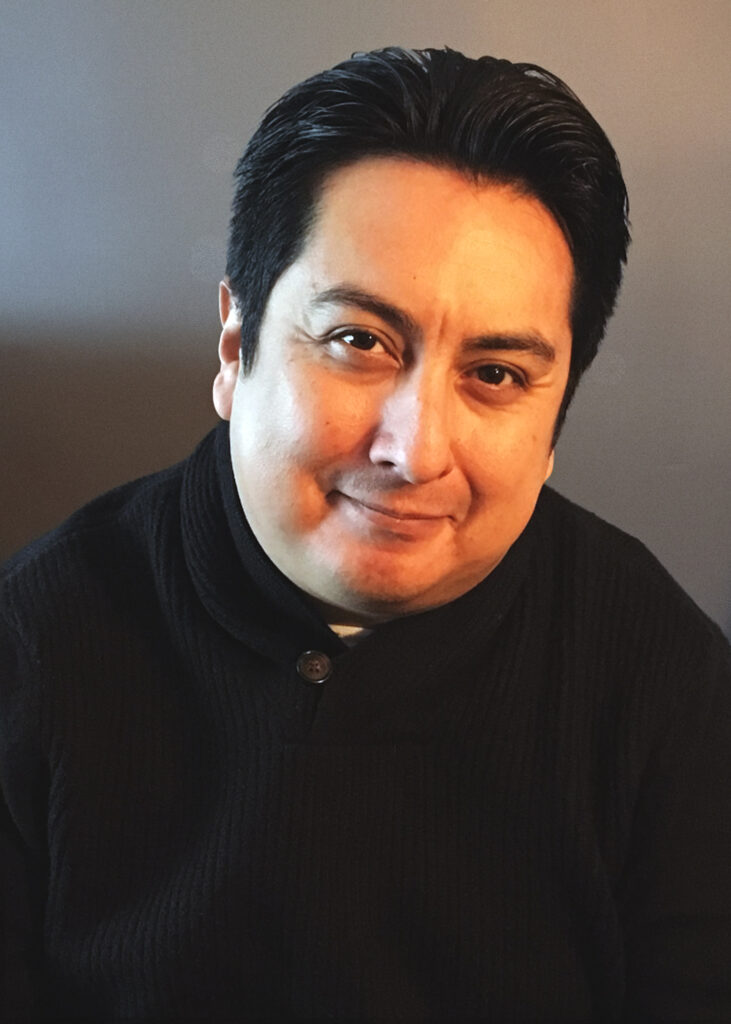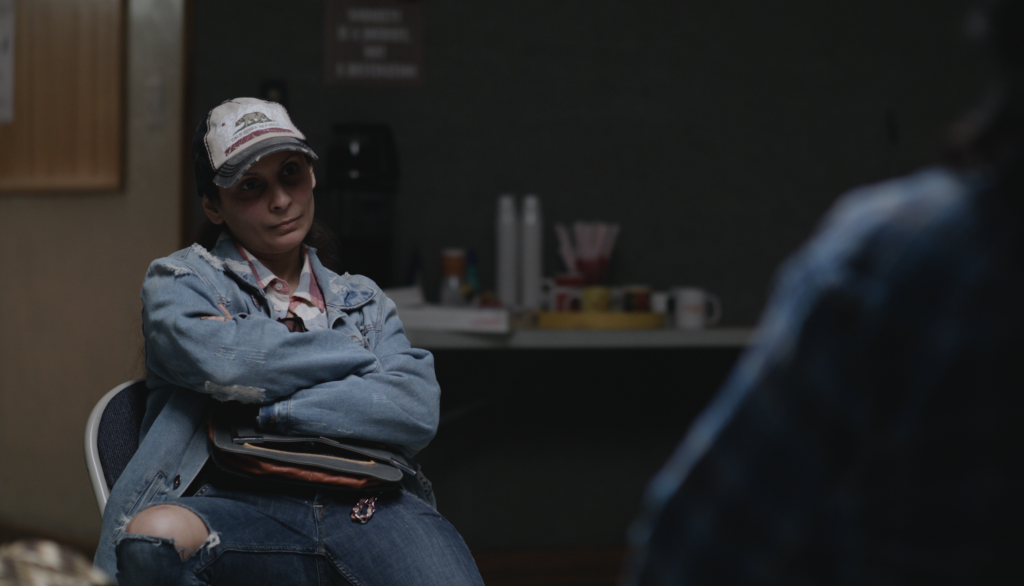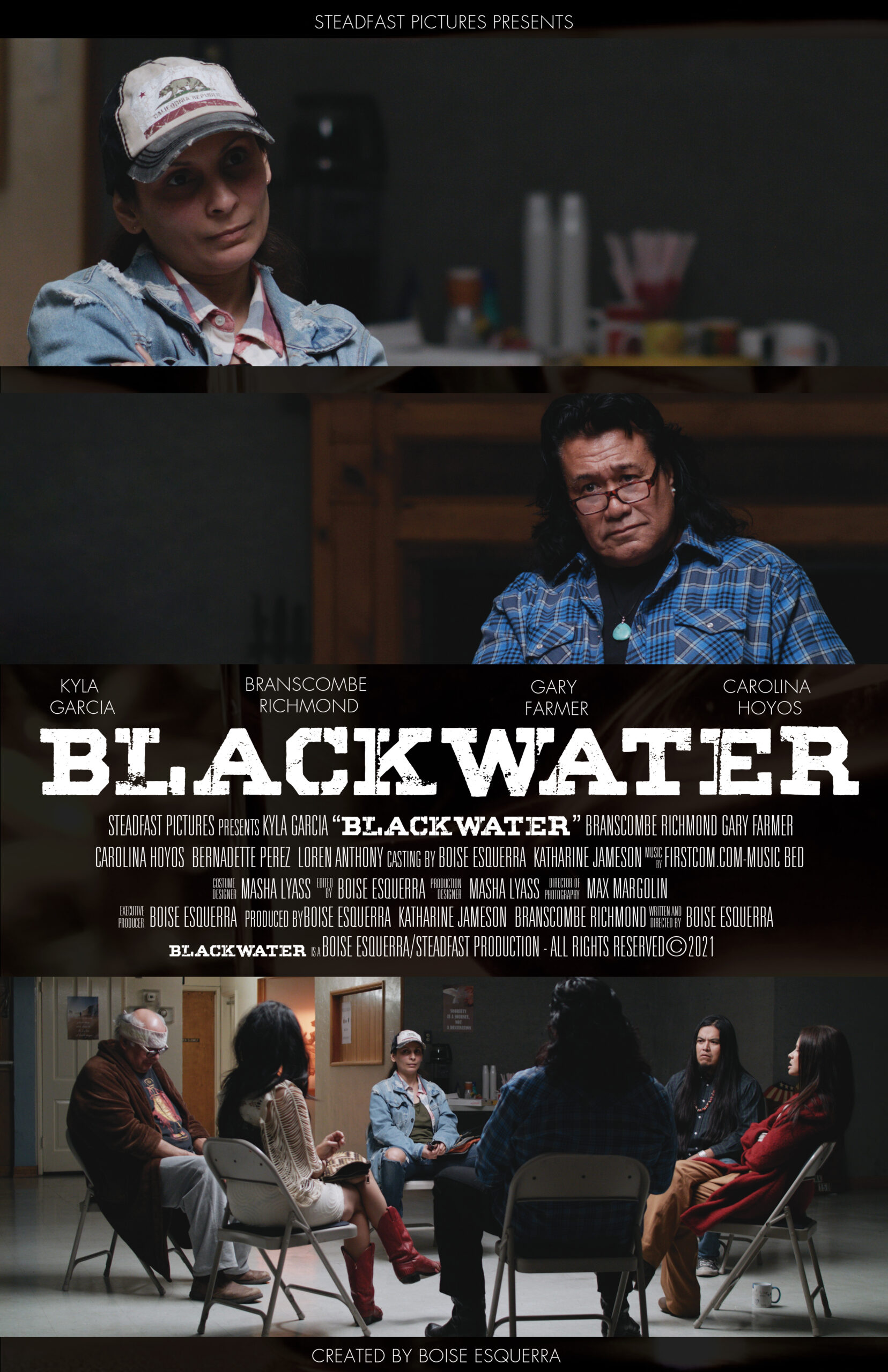Known both as a festival “by filmmakers, for filmmakers” and for its Oscar-qualifying short film awards, the Slamdance Film Festival has long been a mecca for emerging independent directors. This year NYFA alum Boise Esquerra, a graduate of the Los Angeles campus’s MFA Filmmaking and MFA Screenwriting programs, will be right in the middle of the action when his episodic film Blackwater screens in the virtual festival February 12 – 25, 2021.
In the days leading up to the festival Crickett Rumley, NYFA’s Director of Film Festivals, caught up with Boise to talk about the personal experience that inspired his series and the importance of filmmakers from diverse backgrounds telling their own stories.

Cricket Rumley (CR): Hi, Boise! Congratulations on getting into Slamdance! Tell us a little about yourself.
Boise Esquerra (BE): I’d be happy to. I am a Native (Hopi) and Mexican American filmmaker enrolled in the Colorado River Indian Tribes in Parker, AZ. I am a recent graduate of the New York Film Academy (MFA Screenwriting) and hold a BA in Digital Filmmaking and Video Production and an additional MFA in Filmmaking from NYFA. I love storytelling, creating, and everything that entails filmmaking from start to finish. Currently, I reside here in lovely Burbank, CA, and am represented by Sandra Avila at Inclusion Management.
CR: Tell us about your film. What is it about and where does it take place?
BE: Blackwater is an episodic pilot about Native American country music star Birdie Blackwater whose career is fizzling due to excessive drinking that began 10 years ago. Upon moving back to her home reservation, barely clinging onto what little dignity she has left, Birdie is arrested for a barrage of drunken charges and lashing out at tribal police officers during a late-night performance. The next day, tribal courts order Birdie to complete 180 days of wellness therapy and intense probation or face two years in prison. Birdie now finds herself contending each week with a group of offbeat individuals who each possess their own…“unique” mental limitations. The story takes place on a fictional Native American reservation call Red Rock.
CR: Sounds very powerful. Can you tell us about the inspiration for this story?
BE: The inspiration for Blackwater came about in September of 2018… a tough experience. I had started a new class (Transmedia) at the New York Film Academy in Burbank, CA. The ultimate goal of the class: develop, write, and shoot a web series pilot. During the first half of the six-month course, I was given the news that my older brother Brandon had developed cirrhosis of the liver to such a serious extent that he would need a liver transplant. My brother had gotten this condition from depression and extreme alcoholism after the death of our mother in 2015. The additional news I would receive from him is that he would be opting for hospice care and wanted to just go peacefully with family for the remainder of his time. That news, to say the least, was devastating.
Shortly after his funeral, I returned to my Transmedia class. The project I had been working on up to that point was scrapped. I wanted to write something I was familiar with. I had felt my brother in my heart moving me to lean into all that I had experienced with drug addiction and dependency. I also wanted to heal from losing him to alcoholism. Thus, I put forward a new proposal to my instructors, which was Blackwater.
CR: Boise, I’m so sorry for your loss and the pain your family must have experienced. It’s truly inspiring how you were able to transform your personal tragedy into a meaningful story, and so quickly.
What was it like to direct the film?
BE: My favorite experience directing Blackwater was working with such a phenomenal cast and crew who brought their A-game to each and every scene both on and off-screen. I mean, this was a set from heaven, and pulling off a thirteen-page script in just one day with minimal time, a skeleton crew, and several different scenes went by like clockwork. Heck, we even had an hour to spare after the whole thing was over! Directing that day was one of the best experiences I ever had on set.

CR: You directed a thirteen-page script in one day? Wow! Dare I ask what was the most challenging thing about making the film?
BE: It’s crazy because you usually are anticipating challenges that may or may not arise on the day of production, and they did of course, but they were minor and quickly remedied. No. The challenges here were definitely in the final days leading up to production. You would think that getting a simple location (an empty room) for the group scene would be easy-peasy in LA, but when you’re working with a shoestring budget, a simple task all of a sudden becomes a near impossibility. And that was the case up until the last week of location scouting. We finally locked our location, which was an old American Legion post here in Burbank. It was great because they had everything we needed for each scene!
The other difficult part was not in pre-production or production, but actually editing. Here I am, dealing with footage of numerous great takes from each actor/actress and reviewing them over and over. Now, you have to realize, that when you’re dealing with high caliber talent as we had, each throwing you grade-A performances with each take, it is extremely hard to pick the right one! This was mainly the case with our main character, Birdie Blackwater, portrayed by Kyla Garcia. What she brought was gold, I tell ya…GOLD. So for her, sorting through the stuff she gave us and settling on certain clips was by itself a two-month process. Keep an eye on Kyla, SHE IS AMAZING!
CR: It’s true – Kyla is downright riveting to watch. Besides the editing, what did you learn while making this film?
BE: To say I didn’t learn much would be a “shooting myself in the foot” moment and never being able to walk right again, hahaha. I learned a hell of a lot. But I’ll narrow it down to one thing above others, and that was giving my talent the freedom they needed to experiment with their characters and craft on set. There was a lot of ad-libbing, and the more I stepped back and let them have at it, the more they gave. Their performances were elevated, and aside from the few adjustments I gave every now and then, I just kept my mouth shut and steered the ship. I believe this is extremely important because, by the end of any script, these people are going to be the ones who embody this person you wrote, and ultimately bring them to life – and not only the talent, but the entire crew as well.
As a director, I realized that you can only hold onto the material for so long before giving it up. You must trust your talent and pass the baton you have and be the coach they need, guiding them from the sideline. Hopefully, if you put in the hard work needed in pre-production and cast the film right, the process will fully evolve on its own. You only need to sit back and enjoy the show at that point.
CR: Can you talk about the development process for this pilot and the class you developed it in?
BE: Given I had changed my proposal during the six-month Transmedia course, development for Blackwater was done in a three-month period, which is not much time. But…it came very easily to me. The vision for it was clear, so it was really a matter of honing in on what was already in my head. I knew I wanted to do something that was set in a Native American world, and I completely cast with Indigenous talent. This was something I have always wanted to do, I just felt I hadn’t honed in on my craft enough back then. But now it was different. I felt confident enough to give it a try. It was a matter of finding the right, tone, cast, and overall theme, which it turned out to have many.
CR: Do you have any special shout-outs to faculty or staff who really helped or inspired you?
BE: One of the coolest things about the Transmedia 1 & 2 courses at NYFA were instructors Jenni Powell and Chris Modoono. Not only were they extremely wise and easy to talk to, but their guidance was priceless as they were able to get me from concept to a finished pilot. I can’t stress enough about the creative freedom Jenni and Chris gave us in class. I really owe the experience and opportunity to them and to NYFA.
CR: That is so cool. You know every teacher’s dream is to inspire and elevate students at the level you just described.
Let’s talk about the amazing festival run you’re having with Blackwater.
BE: Blackwater has garnered twenty festival selections, five of those being the Austin Film Festival, Slamdance, Nashville Film Festival, Hollyshorts, and Cinequest Film and VR Festival.
CR: That is any filmmaker’s dream list! So what are you looking forward to with Slamdance?
BE: I hope to get as much positive attention as possible and of course find a potential buyer or investor for continued production. Native American content and storytelling are so important in this day and age — and extremely hard to find. Slamdance is one of those benchmark experiences you constantly take a step back and go “Wow, I did something really cool here” and realize you’re on the right path. I also hope to network virtually and meet many of the talented filmmakers at this year’s festival!

CR: You will definitely have some great opportunities there. Do you have any advice for recent graduates making their way into the professional world?
BE: I would say be consistent, persistent, and honest in your work and what it is exactly you want for your future. Filmmaking and its many crafts are a life long pursuit. Pursuing it should make you happy, grateful, and full of good spirit to have such a calling. If it doesn’t, maybe take a step back and re-evaluate. Focus on what you want, whether that is screenwriting, directing (or both), and constantly sharpen your craft and talents in that world every day in some shape or form. Look to each day as an opportunity to move towards that ultimate goal, and eventually one day…you’ll find yourself there. But don’t forget to have fun and relax along the way. Be happy.
CR: Those are very wise words. And speaking of wise words, let’s talk about these trying times we live in today. Do you want to share any thoughts about the importance of film in the lives of humans living right now?
BE: Well, if I do share anything, it’ll be about the importance of diverse inclusion in today’s film industry and breaking the current mold at hand. And I am speaking specifically to Native American inclusion. Native Americans are perhaps the most underrepresented culture in the film and television industry right now in terms of film and television content, screenwriters, directors, and leading talent. We as Native Americans have been fighting an extremely uphill battle in finding large, fair platforms or opportunities to tell “our own stories,” tell our own history, and voice our own point of view. Since the dawn of cinema, history has been flat-out brutal in our depiction, reducing us to “elk skin and feathers,” mascots, savages, and whatever else the multitude of history books will have you believe. We as a people, as a culture, need to be allowed to write and depict our own stories, our own views, and our own history. Blackwater is one such example out of the 574 federally recognized tribes in the United States. The time for diverse inclusion is now, and Hollywood needs to comply accordingly.
CR: The time is definitely now, and I’m so happy that you and your work are a solution to this lack of diversity in Hollywood.
So how we can watch your film during Slamdance and see your Q&A?
BE: Slamdance is an online format this year, meaning anyone with a computer or smart TV can access it for only ten bucks. Yes… $10. We’re talking the crème of the crop here, people! Although the official schedule of events isn’t out yet, getting your pass now will ensure you do not miss a single screening. All films will be viewable throughout the festival from February 12th – 25th.
Blackwater will be screening in the “Episodes” block with many other awesome filmmakers and their films, and you will also be able to watch our Q&A as a bonus feature. Go to www.slamdance.com now for your ticket!
CR: Thanks for stopping by, Boise. Congratulations and best of luck!
[NOTE: NYFA students can get their festival passes for $5 by using their NYFA email address].